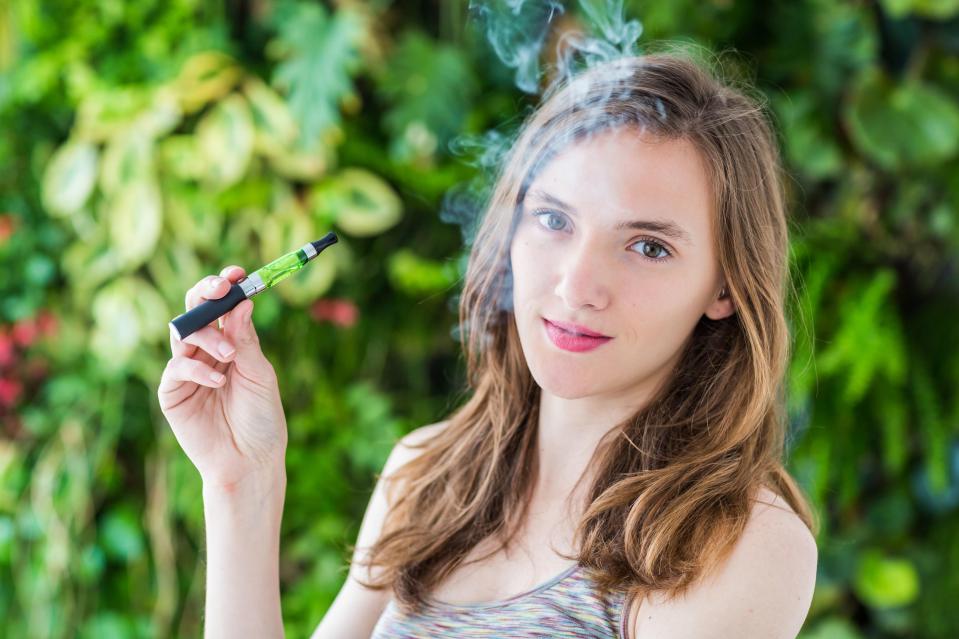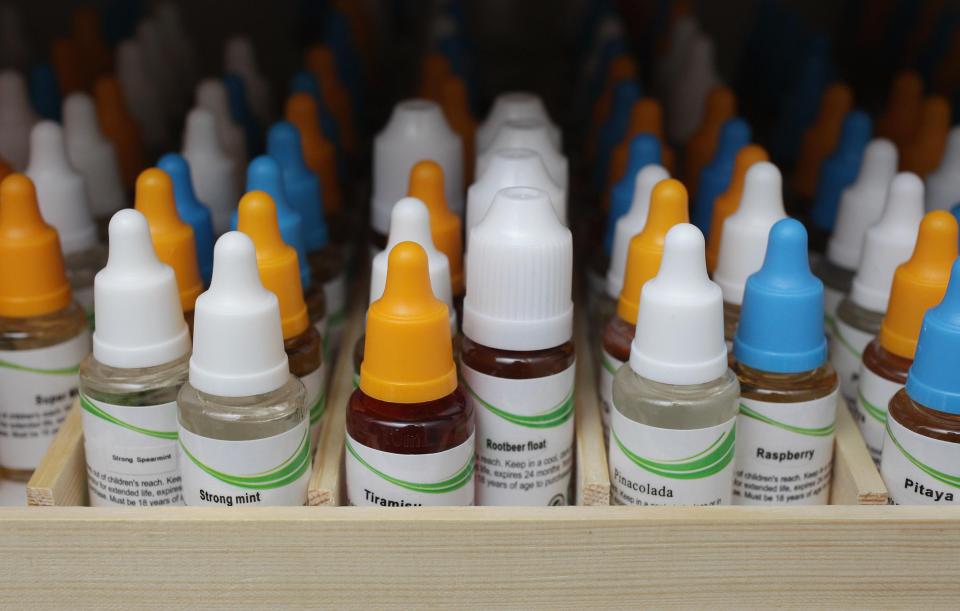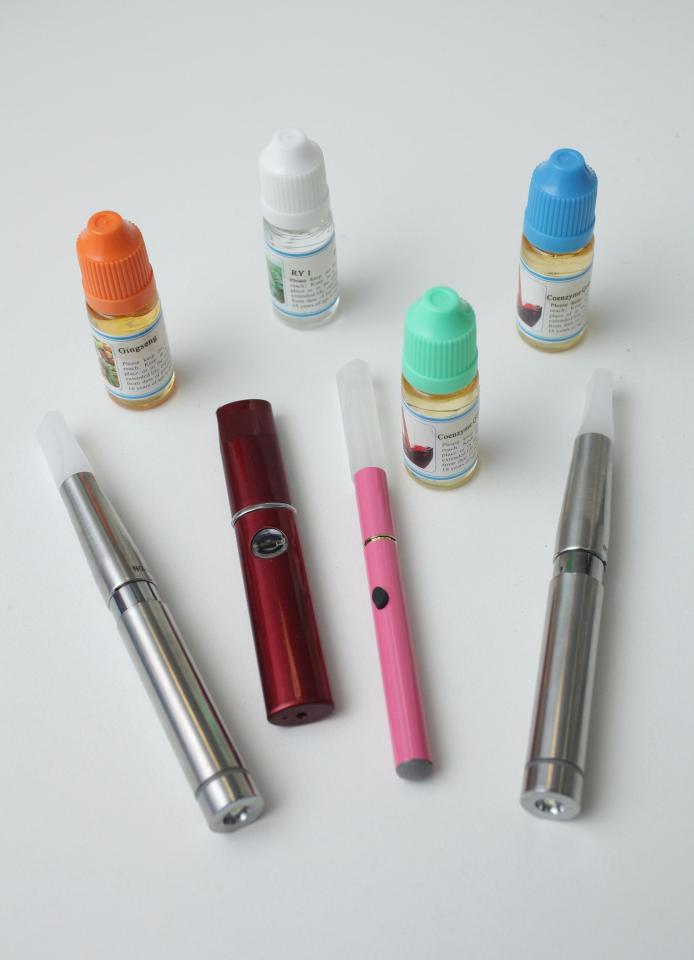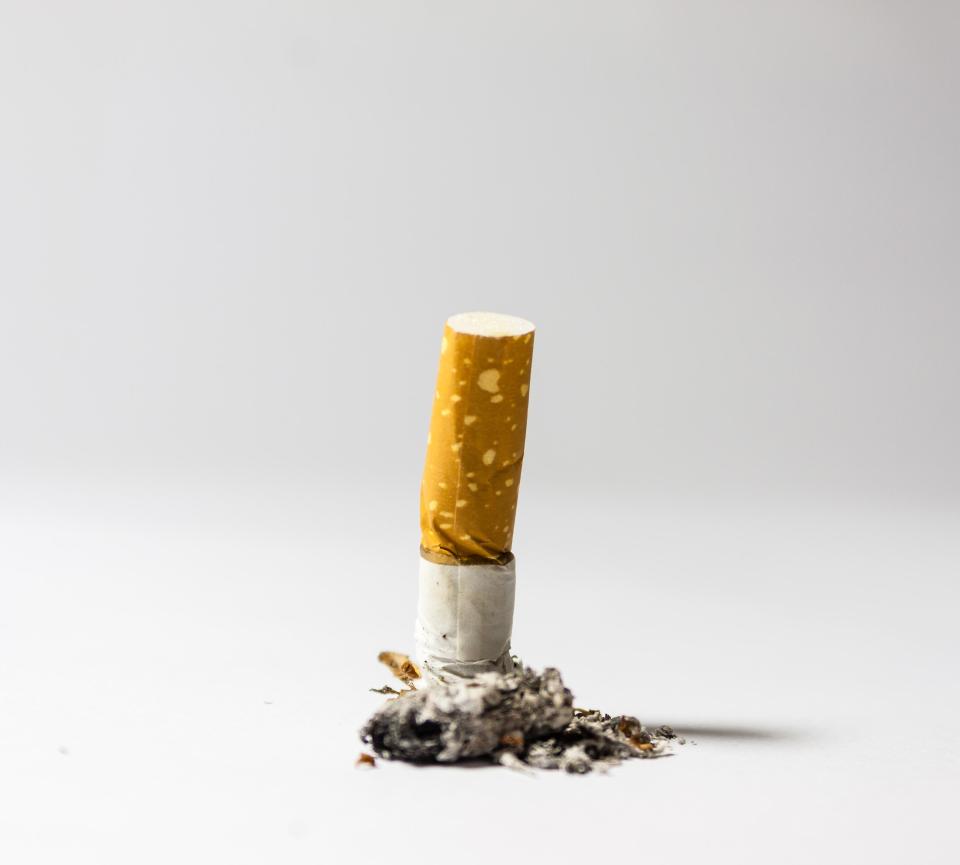Could flavoured e-cigarettes be BANNED? Health experts are considering it
Experts fear flavoured liquids are partly to blame for an 'epidemic' of young people vaping in the US
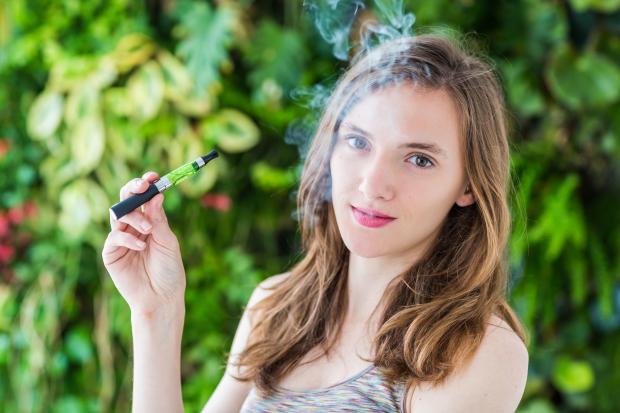
FLAVOURED e-cigarettes could be banned, as health experts try to crackdown on the "epidemic" of young people vaping.
They are concerned the devices are creating a new generation of nicotine addicts.
The ban is being debated in the US, but campaigners this side of the pond are worried the UK could follow suit.
They fear banning flavours would "undermine" the progress made to help smokers quit.
Scott Gottlieb, from the US Food and Drug Administration said: "We see clear signs that youth use of electronic cigarettes has reached an epidemic proportion.
"We cannot allow a whole new generation to become addicted to nicotine."
He said flavoured liquids, like candy floss, bubblegum and strawberry, clearly appeal to young people - and encourage them to try vaping.
Last year, more than two million teenagers used e-cigs in the US, the FDA warned.
Gottlieb said they plan to crackdown on the marketing of e-cigarettes to young people.
The FDA has given e-cigarette makers 60 days to show how they plan to stop sales to youngsters.
And Gottlieb warned it could lead to the removal of some major flavoured brands.
But, Deborah Arnott, chief executive of ASH (Action on Smoking and Health) told The Sun Online banning flavours would make it less likely smokers would quit.
"Banning flavours would undermine the effectiveness of e-cigarettes in helping adult smokers quit, and there's no sign it's needed in Britain," she said.
We cannot allow a whole new generation to become addicted to nicotine
Scott Gottlieb, from the US Food and Drug Administration
"Only a tiny proportion of teens vape, smoking rates have continued to go down, and there's no evidence e-cigs are a gateway into smoking.
"The danger is that a flavour ban will benefit the tobacco industry not public health, as it will discourage smokers from switching to vaping.
"Certainly the market thinks so as tobacco company stocks gained around $20 billion in value on the FDA announcement."
Recent research by ASH shows in the UK two per cent of young people use e-cigarettes on a weekly basis, while another two per cent vape every so often.
There's a low level of experimentation too, ASH said with just 12 per cent of 11 to 18-year-olds surveyed admitting to trying vaping.
The study also found e-cigarette use is "extremely low" among those people who have never smoked.
This isn't the first time experts have called for flavoured e-cigs to be banned.
Last summer top doctors called for flavours to be banned immediately to protect kids.
Prof Thomas Ferkol, from Washington University in St Louis, said: "Product design, flavours, marketing and perception of safety and acceptability have increased the appeal of e-cigarettes to young people.
"These products are 'normalising' smoking and leading to new generations addicted to nicotine."
E-cigs and vaping pens come with a tiny sensor and computer chip that activate a heater, which warms up the nicotine inside every time a person takes a draw.
When the liquid nicotine warms up it vapourises, creating a vapour that users can then suck through the mouthpiece.
Unlike normal cigarettes, the devices don't produce tar and carbon monoxide.
MORE ON VAPING
But, that does not mean the vapour produced is free of harmful chemicals.
Studies have found it contains some toxic chemicals, that are also found in cigarette smoke, at lower levels.
Public Health England and other experts have said vaping is 95 per cent safer than smoking - adding switching completely brings substantial health benefits.
They said the evidence doesn't support the concern that vaping is a "gateway" to smoking.
PHE actively encourages smokers to switch to e-cigs to help them quit.


